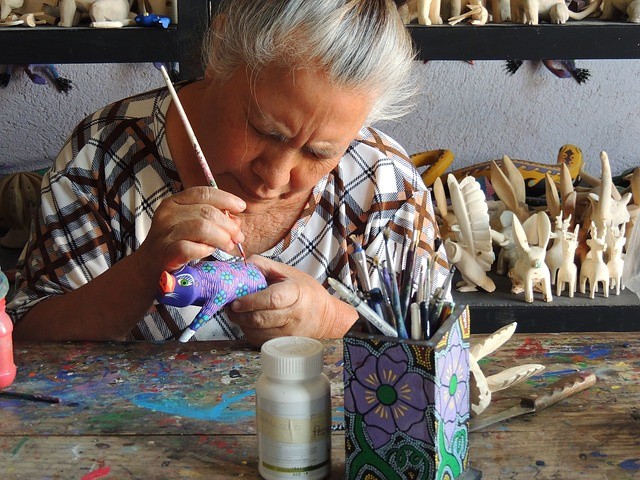Will Labor Conditions Improve for Women in Mexico?

The participation of women in the labor force of Mexico continues to lag behind their male counterparts. Women also confront discrimination, unfair labor conditions and workplace harassment.
According to Nadine Gasman, President of the Institute of the Women of Mexico City (Inmujeres), only four of every 10 women participate in the labor market.
This is supported by The World Bank 2017 data that shows 44.1 percent of women were in the labor force, compared to 79 percent of men. In the same year, women's share of the total labor force was 36.5 percent.
The World Bank also forecasted the increase in the number of women in the labor force to be slow at 37.6 percent by 2030.
Moreover, structural discrimination remains to be a problem in Mexico as salary disparity between men and women reaches 34 percent.
Furthermore, earning a degree does not guarantee equal pay. According to Catalyst.org, tertiary-educated women who work full time are paid 66% of men's earnings, 8% lower than the OECD average.
María Luisa Alcalde, Mexico's Minister of Labor and Social Welfare, said that to end the gender gap "the country must guarantee and promote fair and equal conditions for female development."
But how can labor conditions improve in the country and what can women do to boost this change? Here are the insights from several women from the workforce, according to an article by Mexico Business.
Also read: Mexico: A Day Without Women, Did It Make a Difference?
Women Are Capable of Holding Leadership Positions
Mónica López, Mexico Business' Senior Graphic Designer, is grateful for being in a privileged position but believes that women like her "cannot remain enclosed in our bubble as most women do not enjoy even the basic rights in their labor contract."
"Mexico remain one of the countries with the largest wage disparity and the least support toward working mothers. Managerial positions are hardly occupied by women and most beneficiaries of loans for investment are still men. We cannot live in a country that does not respect the talent and power of the female population."
According to Catalyst.org, women's representation in senior roles has improved for three years in a row and in 2018, women held 34 percent of senior positions across the country. Moreover, 75 percent of companies had at least one woman in senior management.
However, it is also important to note that women only hold 5.7 of positions on major corporate boards in 2015, below the 14.7% global average.
"We must ditch the belief that women generate conflict among themselves and start creating the mindset that women also build strong and talented teams," López added.
Women Should Receive Equal Pay
For Laura Cuevas, a talent manager, a change in mindset is a must.
"There needs to be a change in mindset to truly understand that our capabilities as women are equal to those of men. Macho attitudes need to disappear, as well as all paradigms related to the roles that women can or cannot play successfully. In my role as HR Manager, I have had the luck to be able to defend many female candidates to occupy similar positions to men. It is important to work directly with some women so they can learn how to empower themselves, to believe in their own capabilities and to not be victims of the macho culture in which we live in."
According to United Nations University, the Mexican labor force also includes many female migrant workers from the Northern Triangle (El Salvador, Honduras, and Guatemala). Migrant women working in agriculture are consistently paid less than migrant men even though the work itself is often the same.
Also read: Women of Mexico Are Protesting for Gender Equality on International Women's Day
Companies Should End Harassment of Women In the Workplace
Alessa Flores, a content partnership coordinator, thinks that companies should take proactive actions to "not only ensure there is an equitable distribution of roles between men and women, but to also ensure women have the support, guidance and acceptance to occupy managerial positions."
"In case a woman is harassed or attacked, the company should support her and make sure the aggressor is hold accountable and faces consequences. In my case, I like to organize attendance to feminist meetings and propose ways to make my school and my workplace a better place for women."
According to UNU, migrant women who work as domestic workers often have low salaries and tend to work very long hours and without benefits.
They also experience physical, verbal, and sexual abuse, racial discrimination, insufficient food, retention or non-payment of wages, and wrongful termination. A research on domestic workers in Tapachula, Chiapas revealed that 65 percent experienced abuse from employers.
Meanwhile, according to "A Report on Sexual Harassment in the Workplace in Mexico," part of a series of reports for the International Labor Rights Fund's Rights for Working Women Campaign, women are not only subjected to harassment and discrimination by their employers, but also by union leaders.
The report also revealed that women workers in the subway stations of Mexico City were subject to harassment by union leaders, who demanded sexual favors throughout the hiring process and as a requirement to keep their job.
Also read: Mexican Women Urge Government to Put A Stop To Violence And Femicide
Unless these issues are addressed, women in Mexico will continue to experience unfair labor conditions.
Subscribe to Latin Post!
Sign up for our free newsletter for the Latest coverage!

















